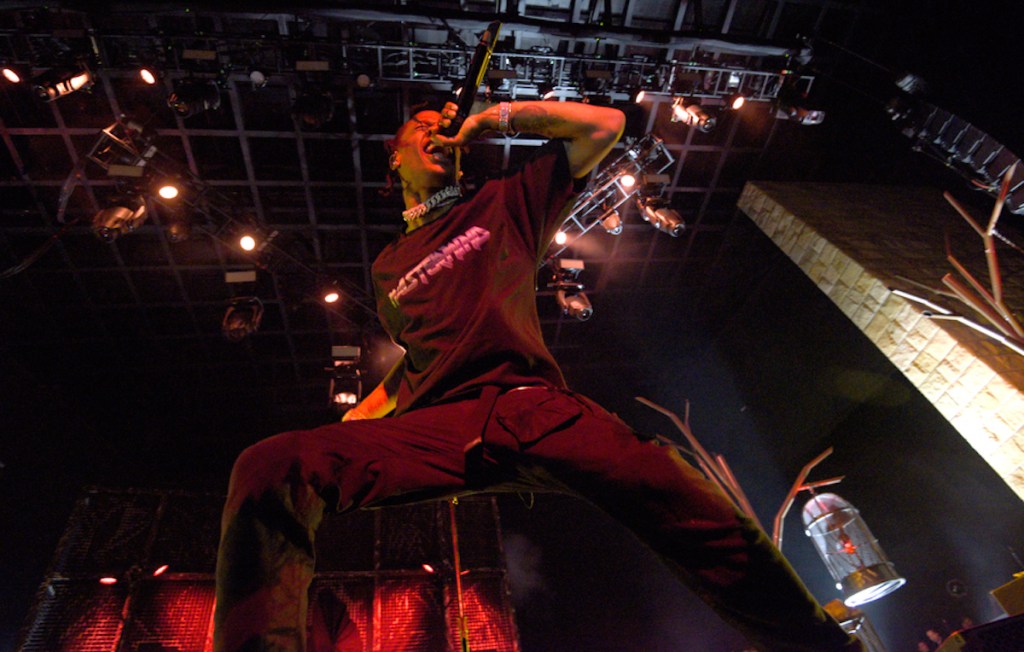TRAVIS SCOTT AT THE SANTA BARBARA BOWL IN 2017
On Saturday, November 6, thousands of peaceful people gathered at the Santa Barbara Bowl for the final concert of the 2021 fall season, Khruangbin. Lines for wristbands were long — some of the longest I’ve seen in two decades of covering shows there — yet the atmosphere remained festive and calm. I can’t be sure how many others were thinking about what had happened the night before in Texas, but it’s hard to imagine that the Astroworld tragedy had not had some impact on the members of Khruangbin, who call Houston home. In between feeling intense gratitude for the safe and sensible crowd and the kind and efficient staff at the Bowl, my mind kept going back to the wild night in 2017 when I saw Travis Scott at the Santa Barbara Bowl. Here’s the review I wrote of that show.
YUJA WANG AND LEONIDAS KAVAKOS TO PLAY BACH, BUSONI, AND SHOSTAKOVICH ON FRIDAY, NOVEMBER 12, AT UCSB
An exceptional recital comes up this Friday at Campbell Hall, thanks to UCSB Arts and Lectures. Pianist Yuja Wang and violinist Leonidas Kavakos are both superstars on their instruments, and teaming up has led them to book virtually every major venue, including Carnegie Hall just last week, on November 4. This duo could play almost anything and make it an occasion, but that’s not what they’ve got planned. Friday’s concert features two sonatas by J.S. Bach and two very intense 20th-century sonatas, one by Ferruccio Busoni and the other by Dmitri Shostakovich. Both works plumb the depths of human emotion and expose feelings that might otherwise remain unexpressed. Busoni wrote his Sonata No. 2 at the turn of the century, beginning in 1898 and finishing his revisions in 1900. It’s a dark journey that goes slightly crazy in the extended finale.
This edition of ON Culture was originally emailed to subscribers on August 13, 2024. To receive Leslie Dinaberg’s arts newsletter in your inbox on Fridays, sign up at independent.com/newsletters.
Shostakovich wrote the Sonata for Violin and Piano in G major, Op. 134, in 1968 for his friend and fellow Russian, violinist David Oistrakh. For those familiar with the arc of Shostakovich’s long and productive career, this late date will signify something important — that the composer was finally out from the shadow of Joseph Stalin, the dictator who had persecuted the composer on and off since at least 1936, when he was declared “an enemy of the people.” A great deal has been written about the various ways in which Shostakovich registers the experience of totalitarian oppression through his music, and the subject remains unsettled to this day. Some listeners hear the sounds of capitulation to ideological pressure; others detect subliminal messages of satire and resistance.
When Carnegie Hall chose an orchestra and a soloist to celebrate their grand reopening night on October 5, 2021, they went with the Philadelphia Orchestra conducted by Yannick Nézet-Séguin with Yuja Wang performing Shostakovich’s Piano Concerto No. 2 from 1957. Wang elicited high praise for her spirited performance of a piece she’s been playing for several years now. Keeping this in mind, and knowing what Leonidas Kavakos is capable of, the audience for Friday evening’s concert at Campbell Hall should expect nothing less than the best and most exciting classical music performance available in the world at this moment. What can music do in the face of overwhelming oppression and devastating fear?
There’s one way to find out — be there on Friday. For tickets and information, visit artsandlectures.ucsb.edu. The concert begins early at 7 p.m., and there will be a conversation between Kavakos and UCSB professor of musicology Derek Katz before the show in Mosher Alumni House. That talk is free and open to all ticket holders.
Support the Santa Barbara Independent through a long-term or a single contribution.

